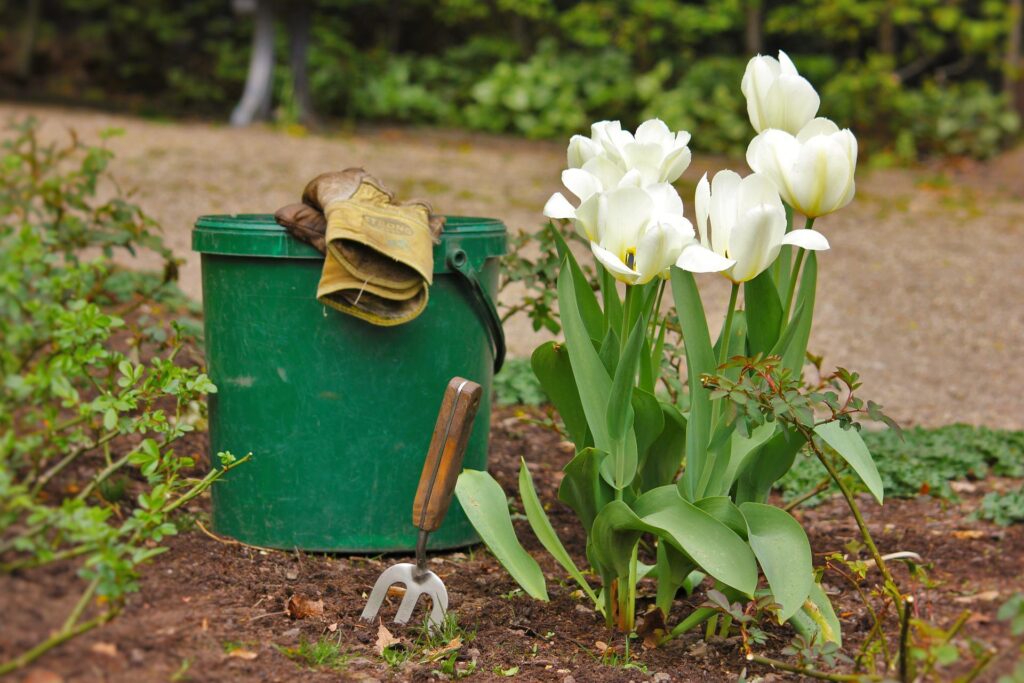 Last weekend I noticed tall grass growing in a garden where it did not belong, along with an abundance of field bindweed. This noxious and invasive weed is one of the worst in our area, inextricably wrapping itself around adjacent plants like a python capturing prey. I try to pull it up before its flowers go to seed and produce a zillion more of itself. The seeds can reportedly remain viable in soil for up to 40 years. Bindweed, famously hard to eradicate, pops up everywhere— in our lawn, at the edges of landscaping fabric, and through any opening made for legitimate garden residents.
Last weekend I noticed tall grass growing in a garden where it did not belong, along with an abundance of field bindweed. This noxious and invasive weed is one of the worst in our area, inextricably wrapping itself around adjacent plants like a python capturing prey. I try to pull it up before its flowers go to seed and produce a zillion more of itself. The seeds can reportedly remain viable in soil for up to 40 years. Bindweed, famously hard to eradicate, pops up everywhere— in our lawn, at the edges of landscaping fabric, and through any opening made for legitimate garden residents.
 The common wisdom for successful weeding is to pull the thing out by its roots. That’s great advice. But bindweed roots can go 20 feet deep! (Not to mention their lateral reach.) And every fragment of root that you leave in the ground will grow a new plant! As a result, I no longer attempt to dig these up, recognizing the futility of such an exercise. Instead, I play the gardening equivalent of whack-a-mole and occasionally deal with the weeds as they surface.
The common wisdom for successful weeding is to pull the thing out by its roots. That’s great advice. But bindweed roots can go 20 feet deep! (Not to mention their lateral reach.) And every fragment of root that you leave in the ground will grow a new plant! As a result, I no longer attempt to dig these up, recognizing the futility of such an exercise. Instead, I play the gardening equivalent of whack-a-mole and occasionally deal with the weeds as they surface.
 As I wrapped inch after inch of their vines around my wrist to pull them out, I thought of figurative weeds in the gardens of our lives. Certain ways of thinking and behaving strangle the joy and peace out of our existence while blending so well with their surroundings they’re hard to spot. I’m talking about the stuff we typically turn to self-improvement books to help us get over.
As I wrapped inch after inch of their vines around my wrist to pull them out, I thought of figurative weeds in the gardens of our lives. Certain ways of thinking and behaving strangle the joy and peace out of our existence while blending so well with their surroundings they’re hard to spot. I’m talking about the stuff we typically turn to self-improvement books to help us get over.
We all have our issues. One of mine has been perfectionism—thinking if I do everything right I will somehow be good enough. I’ve spent time reading up on it, hoping to find relief. But I’m starting to question whether focusing on this and similarly deep-rooted issues constitutes the most direct path to freedom. I’m starting to think that identifying the roots of dysfunctional thinking may be far less relevant than taking action in regard to what presents itself—the thoughts and behavior themselves.
 Perfectionism, after all, is just another way the flesh manifests. Flesh is that natural fallen state of mind that was all we had before Jesus made us a new creation (2 Corinthians 5:17). I defined flesh as “anything you believe, think, say, feel, or do apart from God.” We can’t cast out the flesh, but we can resist it by embracing our new identity in Christ.
Perfectionism, after all, is just another way the flesh manifests. Flesh is that natural fallen state of mind that was all we had before Jesus made us a new creation (2 Corinthians 5:17). I defined flesh as “anything you believe, think, say, feel, or do apart from God.” We can’t cast out the flesh, but we can resist it by embracing our new identity in Christ.
 The Apostle Paul wrote, But I say, walk by the Spirit, and you will not carry out the desire of the flesh (Galatians 5:16). So, here’s what I’m starting to see: if I focus on being led by the Spirit, He will guide me into all truth, and the truth will make me free (John 8:32, 16:13). It’s not necessary to spend years exposing the childhood roots of contrary behaviors to overcome them. Instead we can focus our energies on aligning with the Holy Spirit as He leads. While we may never be perfect this side of eternity, walking by the Spirit is a sure way to enjoy and present a more attractive garden to those around us.
The Apostle Paul wrote, But I say, walk by the Spirit, and you will not carry out the desire of the flesh (Galatians 5:16). So, here’s what I’m starting to see: if I focus on being led by the Spirit, He will guide me into all truth, and the truth will make me free (John 8:32, 16:13). It’s not necessary to spend years exposing the childhood roots of contrary behaviors to overcome them. Instead we can focus our energies on aligning with the Holy Spirit as He leads. While we may never be perfect this side of eternity, walking by the Spirit is a sure way to enjoy and present a more attractive garden to those around us.


Good thoughts, JB. Walking in the Spirit, Renewing / Transforming the Mind, Replacing Old (bad) Habits with New (more constructive) Habits. There’s a pattern here. “How do you get to Carnegie Hall?” as the old saying goes. “Practice, Practice, practice!” Sometimes doing what DOESN’T “come naturally” takes the most diligent mindfulness and spiritual awareness. After all, THAT stuff – the road /’ rut most traveled — is rooted in human nature, right? And we know what human nature is rooted in… 🙁